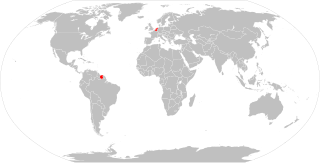
The Dutch Language Union is an international regulatory institution that governs issues regarding the Dutch language. It is best known for its spelling reforms which are promulgated by member states, grammar books, the Green Booklet and its support of Dutch language courses and studies worldwide. It was founded on a treaty concluded between the Netherlands and Belgium on 9 September 1980. Suriname has been an associate member of the Taalunie since 2004.
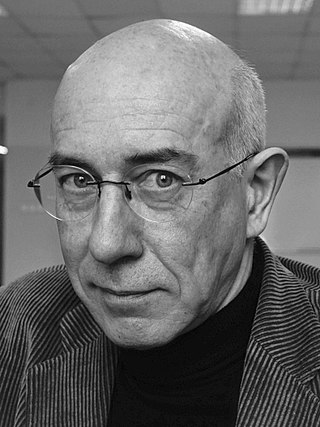
Dirk Geeraerts is a Belgian linguist. He is professor emeritus of theoretical linguistics at the University of Leuven, Belgium. He is the founder of the research unit Quantitative Lexicology and Variational Linguistics (QLVL). His main research interests involve the overlapping fields of lexical semantics, lexicology, and lexicography, with a theoretical focus on cognitive semantics. His involvement with cognitive linguistics dates from the 1980s, when in his PhD thesis he was one of the first in Europe to explore the possibilities of a prototype-theoretical model of categorization. As the founder of the journal Cognitive Linguistics and as the editor of the Oxford Handbook of Cognitive Linguistics, he played an instrumental role in the international expansion of cognitive linguistics. Geeraerts is one of the outspoken advocates of the implementation of empirical methodologies, such as corpus linguistics in cognitive linguistic research. He also argues for the involvement of more pragmatic elements such as contextual factors, lectal variation, and language history that influence the construal of word meanings and the choice of lexical items for concepts.

The Flemish Diamond is the Flemish reference to a network of four metropolitan areas in Belgium, three of which are in the central provinces of Flanders, together with the Brussels-Capital Region. It consists of four agglomerations which form the four corners of an abstract diamond shape: Brussels, Ghent, Antwerp and Leuven.
The Katholieke Universiteit Leuven Associatie Kortrijk, or Kulak for short, is a university satellite campus of the KU Leuven in the city of Kortrijk (Courtrai) in the Belgian province of West Flanders and is therefore also officially a Dutch-speaking institution.
Petjo, also known as Petjoh, Petjok, Pecok, Petjoek is a Dutch-based creole language that originated among the Indos, people of mixed Dutch and Indonesian ancestry in the former Dutch East Indies. The language has influences from Dutch and then depending on the region Javanese, Malay, Sundanese and Betawi. Its speakers presently live mostly in Indonesia and the Netherlands. The language is expected to become gradually extinct by the end of the 21st century, due to Indos' shift toward Indonesian in Indonesia and Dutch in the Netherlands.

VIB is a research institute located in Flanders, Belgium. It was founded by the Flemish government in 1995, and became a full-fledged institute on 1 January 1996. The main objective of VIB is to strengthen the excellence of Flemish life sciences research and to turn the results into new economic growth. VIB spends almost 80% of its budget on research activities, while almost 12% is spent on technology transfer activities and stimulating the creation of new businesses, in addition VIB spends approximately 2% on socio-economic activities. VIB is member of EU-LIFE, an alliance of leading life sciences research centres in Europe.

Surinamese Dutch, also known as Surinaams is the form of Dutch spoken in Suriname and is the official language in Suriname, a former colony of the Netherlands. Dutch is spoken as a native language by about 80% of the population, most of them being bilingual with Sranan Tongo, Hindustani, Javanese, and other languages. Nevertheless, Dutch is the country's sole official language. Surinamese Dutch is easily intelligible with other forms of Dutch. Furthermore, as opposed to other languages that have different forms in the Americas the regulation and thus standardised spelling of the Dutch language is done through a joint Dutch–Belgian–Surinamese organization, the Dutch Language Union, and thus has no regional differences regarding spelling. Suriname has been an associate member of this Nederlandse Taalunie since 2004. Therefore, many typical Surinamese words were added to the official Wordlist of Standard Dutch, known as "the Green Booklet".
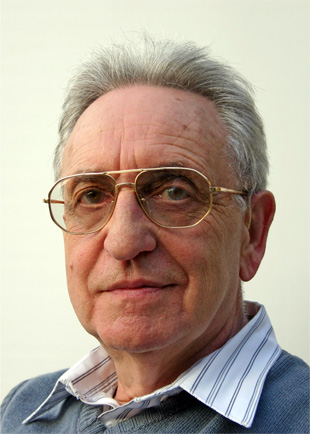
Paul Kempeneers is a Belgian philologist and linguist.
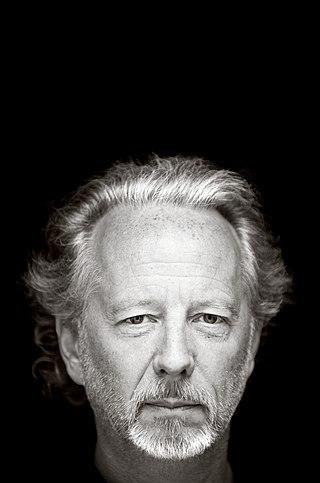
Stefan Hertmans is a Flemish Belgian writer. He was head of a study centre at University College Ghent and affiliated researcher of the Ghent University. He won the Ferdinand Bordewijk Prijs in 2002 for the novel Als op de eerste dag.
The history of Dutch orthography covers the changes in spelling of Dutch both in the Netherlands itself and in the Dutch-speaking region of Flanders in Belgium. Up until the 18th century there was no standardization of grammar or spelling. The Latin alphabet had been used from the beginning and it was not easy to make a distinction between long and short vowels (a / aa). The word jaar (year) for instance, could be spelt jar,jaer,jair, or even yaer and iaer. With the spirit of the French Revolution, attempts were made to unify Dutch spelling and grammar. Matthijs Siegenbeek, professor at Leiden was officially asked in 1801 to draw up a uniform spelling.

Patricia De Martelaere was a Flemish philosopher, professor, author and essayist. Born in Zottegem, Belgium, her full name was Patricia Marie Madeleine Godelieve. She graduated in philosophy from the Catholic University of Leuven and then taught and lectured there and at the Catholic University of Brussels.
The Arenberg Research-Park is a science park founded by the KU Leuven in 2004. The science park is in the immediate vicinity of the Arenberg campus of the university in Heverlee (Belgium), UZ Leuven campus Gasthuisberg and IMEC. The park is 13 hectares and consists of different cluster-areas, with amongst others a bio-incubator for spin-offs of the university and space for companies active in research and development.

Henri Maria Dymphna André Laurent "Rik" Torfs is a Belgian canon law scholar and media personality. He is a former Senator for the Christian Democratic and Flemish party in the Belgian Federal Parliament and a former Rector of the Catholic University of Leuven.
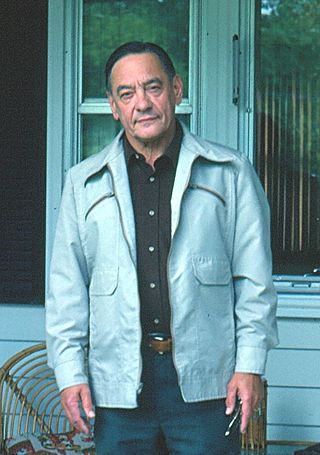
Frans Van Coetsem was a Belgian (Flemish) linguist. After an academic career in Flanders and the Netherlands he was appointed professor at Cornell University in 1968, and consequently he emigrated to the US, where, after a few years, he chose to become a naturalized American citizen.

KU Leuven is a Catholic research university in the city of Leuven, Belgium. Founded in 1425, it is the oldest university in Belgium and the oldest university in the Low Countries.

Flemish (Vlaams) is a Low Franconian dialect cluster of the Dutch language. It is sometimes referred to as Flemish Dutch, Belgian Dutch, or Southern Dutch. Flemish is native to the region known as Flanders in northern Belgium; it is spoken by Flemings, the dominant ethnic group of the region. Outside of Belgium Flanders, it is also spoken to some extent in French Flanders and the Dutch Zeelandic Flanders.
DT-Manie is a set of rules that addresses a problem in the correct spelling of Dutch.

Lode Van Hecke OCSO is a Belgian Catholic prelate who serves as Bishop of Ghent. He was previously abbot of Orval Abbey from 2007 to November 2019. A monk since 1976, he is the only Trappist ever to be appointed bishop of a Belgian diocese.

VIVES University of Applied Sciences is a University College in West Flanders. The name refers to the Spanish-Brussian humanist Juan Luis Vives. VIVES is the result of a merger between KATHO and KHBO in 2013.
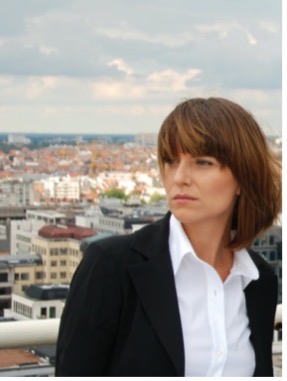
Oana Bogdan is an architect with Belgian and Romanian nationality. Together with Leo Van Broeck, she founded the architectural firm Bogdan & Van Broeck. She is considered as an authority in the field of architecture and is much in demand as a jury member for architecture awards.















